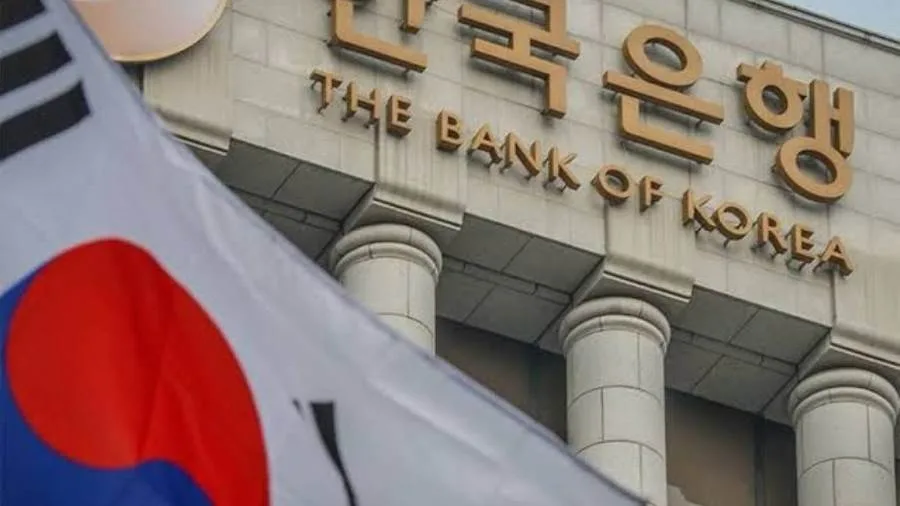South Korea Lowers Interest Rates to bolster Economy During Political and Trade Instability

In a move aimed at supporting the domestic economy ahead of the presidential elections, the Bank of Korea announced on Thursday a 25 basis point cut in its benchmark interest rate, lowering it from 2.75% to 2.5%. This unexpected decision comes just five days before the scheduled election on June 3rd, amid political instability and visible signs of economic slowdown.
The central bank’s Monetary Policy Committee cited weakening domestic demand and ongoing uncertainty surrounding U.S. trade policies—particularly Washington’s comprehensive tariff plan—as key reasons for the rate cut. As part of its economic outlook revision, the Bank of Korea sharply lowered its growth forecast for 2025 from 1.5% to just 0.8% of GDP, according to the Associated Press.
Following the rate cut announcement, South Korea’s financial markets responded positively. The KOSPI index, the main benchmark of the Seoul Stock Exchange, rose by 1.7%, reflecting investor optimism over the monetary easing and its potential to stimulate economic activity.
Despite a recent easing of U.S.–China trade tensions, the global economic outlook remains subdued due to the lingering impact of trade restrictions and tariffs. The Bank of Korea noted in its statement that ongoing geopolitical uncertainty and sluggish job creation in the manufacturing and other sectors continue to weigh heavily on the economy.
In the first quarter of this year, South Korea’s real GDP shrank by 0.2% compared to the previous quarter—marking the first quarterly contraction in nine months and highlighting the fragility of the country’s economic recovery.
This economic downturn coincides with significant political upheaval, notably the failed attempt by former President Yoon Suk-yeol to impose martial law in December, which led to political chaos and a decline in consumer spending. Yoon was removed from office last month, and the nation is now preparing to elect his successor.
Adding to the pressure, Washington’s sweeping trade measures have hit South Korea’s trade-dependent economy hard. Earlier, U.S. President Donald Trump announced reciprocal tariffs, including a 25% levy on South Korean goods. However, implementation has been postponed for 90 days.
The Bank of Korea’s rate cut underscores the monetary authorities’ concern over a deepening economic slowdown. This move is a dual response to both internal weaknesses and external trade-related pressures. However, the effectiveness of the policy will depend significantly on upcoming political developments and the evolution of international trade relations, particularly with the United States.
